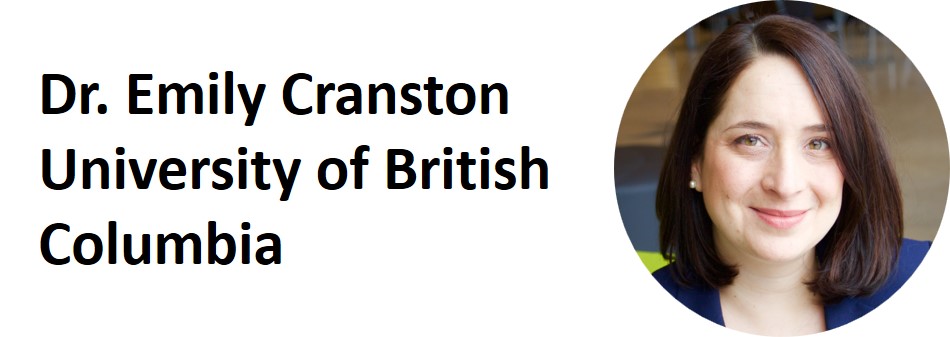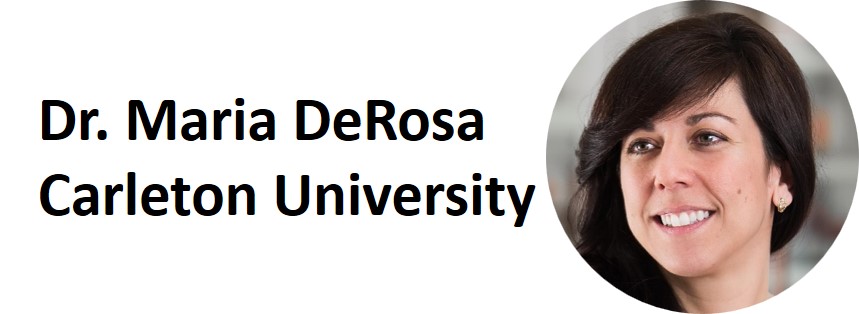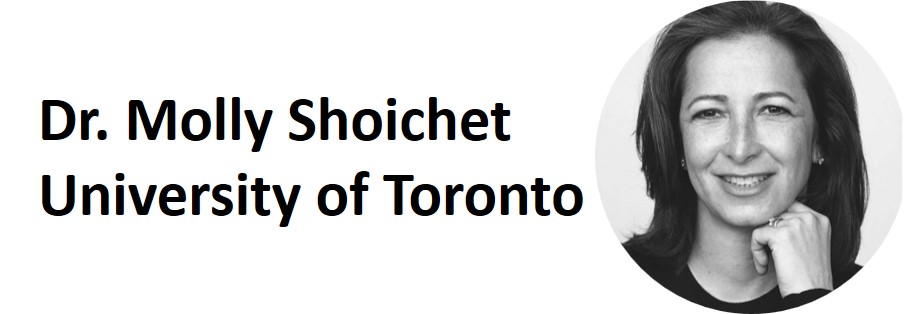DIVERSITY IN NANOSCIENCE
Our Pool of Talents

Danielle McRae recently completed her PhD in Prof. Lagugne-Labarthet’s group at Western University. Her thesis title was “Plasmon-Mediated Physical and Chemical Transformations of Nanomaterials”, involving catalyzing chemical reactions through the use of plasmon resonances, and monitoring them through spectroscopic and microscopic techniques such as surface- and tip-enhanced Raman spectroscopy. Her PhD work also included using electromagnetic field calculations to study new fractal nanomaterials.
Danielle comes from Ottawa, where she completed her B.Sc. Honours in Chemistry and Physics at Carleton University in 2015. She completed her honours project on fibre-based sensors under the supervision of Prof. Ianoul. Outside of the lab, Danielle is passionate about science outreach, and enjoys getting outside with her Girl Guides. She is currently seeking a position in nanoscience, relating to her experience in spectroscopy and plasmonics.

Isobel Bicket defended her PhD thesis, “Electron Spectromicroscopy of Multipole Moments in Plasmonic Nanostructures”, in May 2020. She performed her thesis work under the supervision of Prof. G.A. Botton at McMaster University. Her research focussed on the manipulation of the geometry of plasmonic nanostructures to engineer different electromagnetic moments, including electric, magnetic, and toroidal dipole moments; and on the use of electron energy loss spectroscopy and cathodoluminescence spectroscopy to study the near-field and far-field plasmon response of her fabricated nanostructures. Previously, Isobel came from Ottawa to Waterloo to complete her BASc. in Nanotechnology Engineering at the University of Waterloo before proceeding to the MASc. and PhD programs at McMaster University in Materials Science and Engineering. She aspires to continue learning and venturing into new territory in nanoscale physics throughout her career.

Khaled Murtada completed his PhD in Prof. Ángel Ríos’s research group at the University of Castilla-La Mancha (Spain) in 2019. His thesis was titled “Use of New Nanomaterials for the Development of Analytical Methodologies in Food, Pharmaceutical and Bioanalytical Fields”. His PhD research focused on synthesis and characterization of new nanomaterials, as well as using the synthesized materials as tools in Analytical Chemistry. His PhD work also included an investigation into using novel nanomaterials as sensors that were modified to determine the analytes of interest in different matrices. Prior to studying in Spain, Khaled completed his BSc and MSc degrees in Palestine, at An-Najah National University. Currently, Khaled is a postdoctoral fellow in Analytical Chemistry and solid-phase microextraction (SPME) at the University of Waterloo in Prof. Pawliszyn’s research group. He is currently seeking a position in Analytical Chemistry, relating to his experience in sample preparation, sample detection, nanoscience, nanomaterials synthesis and applications.
Nano Ontario recognizes that human diversity is central to realizing the vision and objectives of the organization. To this end, Nano Ontario is an all-inclusive organization that encourages and supports the participation of all members actively engaged in nanoscience and nanotechnology in the province, including women and members of traditionally under-represented groups in science, technology, engineering and mathematics.As an organization committed to serving and celebrating the accomplishments of its diverse members, Nano Ontario is commemorating International Women’s Day on March 8 by launching a new initiative called “Meet Ontario Women in Nanotechnology”, profiling on a monthly basis the activities of accomplished female scientists, engineers, business leaders, government and private employees from across the province of Ontario.In addition, Nano Ontario has launched in 2017 the program of awards for Ontario female scientists and engineers engaged in nano-related R&D at a University or a Company in Ontario. The winners in three categories, Outstanding lifetime achievements, outstanding mid career achievements and early career achievements of the past years are:
Diversity in Nanosciences and technologies

Nanoscience research/industry/standards/management expertise:
Environmental impacts of nanomaterials on the chemical balance of atmospheric and geochemical systems
Highlights of nanoscience /industry/standards/management:
We investigate the surface chemistry of iron-containing nanomaterials relevant to environmental and industrial settings. Using a suite of analytical techniques coupled with mathematical modeling and computational chemistry methods, we showed how the high affinity of iron oxide nanoparticles towards arsenic compounds in aqueous environments has implications on the (1) mobility of these pollutants in geochemical environments, and (2) design of technologies for arsenic removal from fuels and industrial waste water. We also study the formation of nanomaterials and their chemical transformation in atmospheric aerosols from secondary processes to better understand their effect on the climate. The ultimate goal of our work is to provide science-based insights into the environmental impacts of nanomaterials, which are aligned with Ontario’s strategic plan for building an environmentally-friendly economy heavily enabled by nanotechnology. In recognition of my research and teaching, I received the U.S. Research Corporation Cottrell College Science Award (2007), the Petro-Canada Young Innovator Award (2008), the American Chemical Society–Petroleum Research Fund Award (2009), the Early Researcher Award by Ontario’s Ministry of Research and Innovation (2011), and Faculty Mentoring Award from Laurier’s Alumni Relations (2015).
Connections with industry/government in Ontario/Canada:
Recently received the Imperial Oil University Research Award to investigate innovative processes to cleanup nitrogen oxide emissions. I also serve as a member of the Standards Committee of Nano Ontario, and Canada’s ISO/TC229 (International Organization for Standardization/Technical Committee) for Nanotechnologies.
Website: https://www.wlu-science-chem-halabadleh.ca/

Nanoscience research/industry/standards/management expertise:
Design, development and commercialization of nanoscale organic particles including high-performance pigments, polymer latex, nanocapsules, sol-gel nano-silicas, and composites.
Highlights of nanoscience /industry/standards/management:
Rina Carlini is an accomplished business leader with 20 years industry experience in science and technology innovation, commercialization and developing new ventures in the areas of advanced materials, cleantech, nanotechnology, process manufacturing, and life science. Her professional experience spans across many industry sectors and functional roles, including pharmaceutical drug discovery (Merck-Frosst, Syntex), Advanced Materials & Nanotechnology and directing a global technology incubator program (Xerox), and in the cleantech sector as Director of Commercial Development at GreenCentre Canada. In 2012, Rina established an innovation consulting firm that works with technology-based companies and non-profit organizations to accelerate product innovation, business development and commercialization. Rina’s credentials include a Ph.D. in Chemistry from University of Waterloo, certificates in Executive Management from McMaster University’s DeGroote School of Business and in Business Model Innovation from Harvard University, and Green-belt certification in Lean Six Sigma Design for Innovation. She is very committed to helping technology companies achieve business success through her volunteer work on non-profit boards (Nano Ontario and Waterloo Institute for Nanotechnology) and grant funding committees including NSERC Research Partnerships Programs, Canada Foundation for Innovation and Ontario Centres of Excellence.

Nanoscience research/industry/standards/management expertise:
My expertise lies in (i) tailoring interfacial properties of (bio)surfaces and colloids to control material performance and functionality, with a focus on nanocellulose, and (ii) advanced nanomaterial characterization techniques, including atomic force microscopy, surface plasmon resonance spectroscopy and quartz crystal microbalance gravimetry.
Highlights of nanoscience /industry/standards/management:
• Development of new nanocomposites based on nanocellulose
• Novel surface modification routes for nanocellulose
• Enhanced formulated aqueous products (emulsions, gels, foams) with nanocellulose
• Nanocellulose aerogels as flexible supports for energy storage, water treatment and separations applications
• Advanced AFM of nano and biomimetic materials (surface forces, adhesion, friction)
Connections with industry/government in Ontario/Canada:
My research program is directly aligned with Canada’s focus on the bioeconomy and clean technologies where Ontario and Canada stand to reap significant social, environmental and economic benefits from this work which aims to establish nanocellulose (from Canadian wood pulp) as a material platform. I work extensively with nanocellulose producers and end-users across Canada and worldwide looking at both large-scale applications and value-added applications of nanocellulose.
Website: https://cranstongroup.forestry.ubc.ca/people/

Nanoscience research/industry/standards/management expertise:
Applying bionanotechnology to problems in biosensing and controlled delivery
Highlights of nanoscience /industry/standards/management:
Our research examines a type of synthetic nucleic acid called ‘aptamers’ that can fold into 3D nanoscale shapes capable of binding tightly to a specific molecular target. I run the CFI-funded facility known as the LADDER (Laboratory for Aptamer Discovery and Development of Emerging Research). My group has developed aptamers for targets applicable to medical and food safety testing (e.g. dopamine, mycotoxins, and norovirus). I am also actively involved with researchers at Agriculture and Agrifood Canada to develop an aptamer-based responsive material for a “smart fertilizer”. These coatings become more permeable in response to a molecular signal, and could improve the economic and environmental sustainability of fertilizer nutrients. In recognition of my research and teaching, I received the John Charles Polanyi Research Award for new researchers in 2006, an Ontario Early Researcher Award in 2010, and a Capital Educator’s Award in 2015.
Connections with industry/government in Ontario/Canada:
My connections with government and industry are primarily in the area of food and agriculture. For example, I am working with Agriculture and Agri-Food Canada (AAFC) on the smart fertilizer project, with Canadian Centre for Swine Improvement for the development of an aptamer-based test for Boar Taint, and Canadian National Millers Association for mycotoxin assays.
Website: http://www.carleton.ca/~mderosa

Nanoscience research/industry/standards/management expertise:
The Shoichet lab is expert in the design of polymeric nanomicelles for drug delivery, polymeric nanospheres for protein delivery, and stabilized nanodrugs.
Highlights of nanoscience /industry/standards/management:
The Shoichet lab has invented a series of composition of matter patents and published a series of papers that demonstrate the advantage of their polymeric nano micelles and polymeric nano spheres.
Connections with industry/government in Ontario/Canada:
The Shoichet lab collaborates with Hammock Pharmaceuticals Inc (Ontario) and has worked with the Ministry of Research, Innovation and Science on Research2Reality.
Website: https://shoichetlab.utoronto.ca/

Nanoscience research/industry/standards/management expertise:
Design and the fabrication of hybrid, functional materials based on metal and carbon nanostructures. Development and understanding of complex nanosystems by integrating multiple discrete components into a single multifunctional nanocomposite for use in cascade chemical reactions or achieve combination properties. Integration of nanostructures on surface and interfacing with molecular components.
Highlights of nanoscience /industry/standards/management:
We research in and experiment with different fields of chemistry, ranging from organic chemistry, to supramolecular chemistry, photochemistry and materials and nanomaterials chemistry. Merging these diverse expertise together, our interests are focused to the development of molecular strategies to synergistically integrate custom-designed organic compounds with nanomaterials. The potential applications of our work are wide-ranging, from uncovering new strategies in industrial catalysis, writing of data beyond current limits for information technology and memory storage devices, super-resolution imaging tools to probe cell structure and function, and engineering nano-enhanced fibers and textiles. In addition, we combine benchtop investigations with single molecule microscopy, a ground-breaking tool to understand reactions mechanisms and kinetics, and uniquely apply these techniques to investigate the electronic and optical properties of metal nanoparticles.
Connections with industry/government in Ontario/Canada:
Our connections with the industry are mainly focused on nanoengineering materials (protective coatings, antimicrobial textiles and fabrics, anticorrosive surfaces). Since 2018, we collaborated with Ontario-based company BIOSA Technologies for the development of bio-nano materials. I am part of the NanoOntario Board of Directors since 2019.
Website: http://www.ryerson.ca/cab/nanomaterials

Dr. Shahram Karimi is a tenured professor and the NSERC Industrial Research Chair for Colleges (IRCC) in Advanced Materials for Energy Conversion and Storage Technologies at Lambton College. He received his B.A.Sc., M.A.Sc., and Ph.D., all in Chemical Engineering, from the University of Toronto. Since joining the College in 2006, he has successfully established a highly active and multi-disciplinary research group working on synthesis, characterization and optimization of micro- and nano-materials for electrochemical power sources, commercial sensors, industrial protective coatings and wastewater treatment processes. A major focus of his research group has been the development and optimization of nanocomposites with specified properties for use in primary and secondary batteries, PEM and alkaline fuel cells and electrolyzers, supercapacitors, and hybrid solar cells with emphasis on electro-synthesis, electro-catalysis, and pulsed electrodeposition of metals and alloys with unique chemical, mechanical, electrical and optical properties. Dr. Karimi’s research activities extend to include corrosion science and protection, evaluation, simulation and optimization of energy flow and management of hybrid energy systems in industrial and commercial settings, and development of membrane-based processes for industrial wastewater treatment applications.

A trusted source of information for all nanoscience and nanotechnology activity in Ontario.
